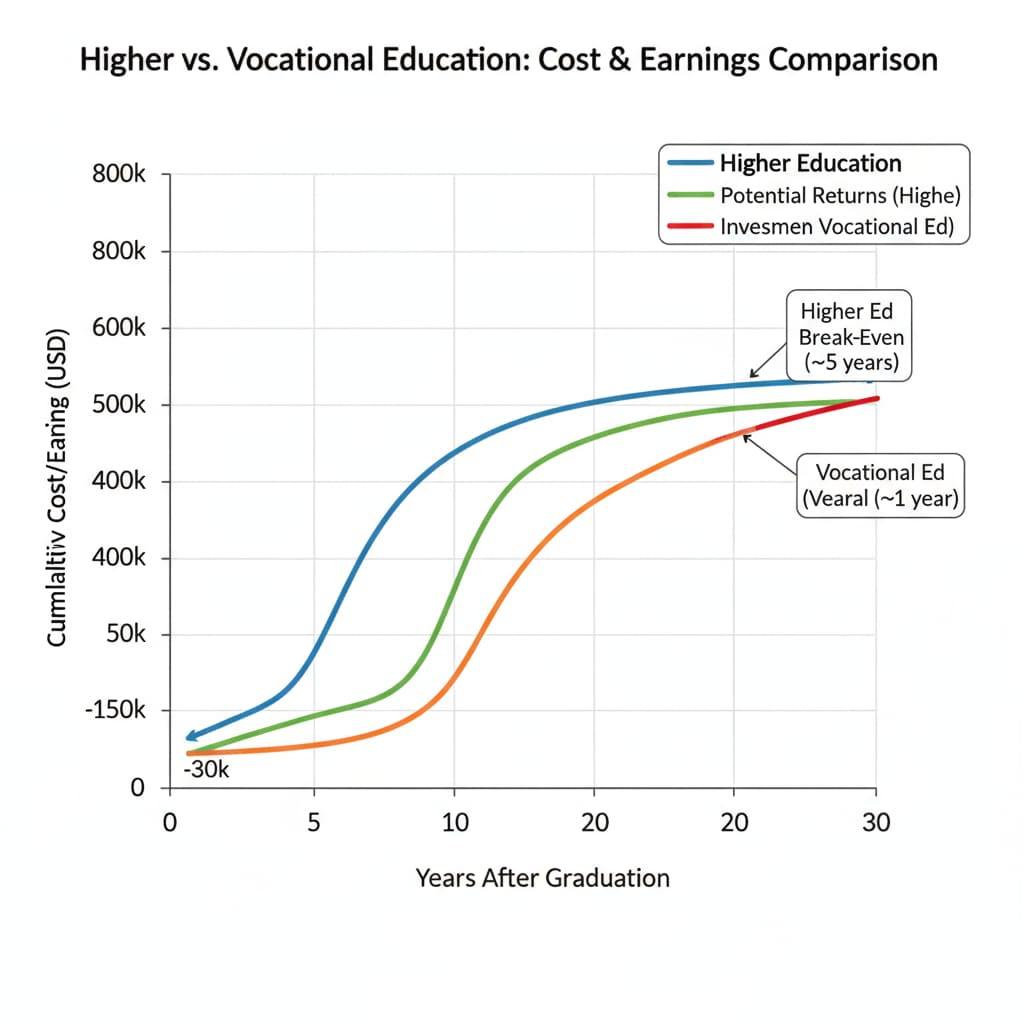When considering the path of education, the concepts of higher education, return on investment, vocational education, and employment come to the forefront. In today’s competitive job market, it’s crucial to evaluate which educational route offers the best returns. Let’s take a closer look at the differences between higher education and vocational education in terms of investment and career outcomes.

The Higher Education Conundrum
For decades, higher education has been seen as the golden ticket to a successful career. Many students and parents believe that obtaining a university degree is the only way to secure a well-paying job. However, this may not always be the case. According to National Center for Education Statistics, a significant number of university graduates are facing job mismatches. This means they are working in fields that are not related to their majors. As a result, they may not be fully utilizing their knowledge and skills, which can impact their job satisfaction and earning potential.

The Burden of Student Loans
In addition to job mismatches, another major issue associated with higher education is the soaring student loan debt. Many students take out large loans to finance their university education, hoping to pay them off after graduation with their higher salaries. Unfortunately, the reality is often different. Consumer Financial Protection Bureau data shows that a large portion of graduates struggle to make ends meet while repaying their loans. This financial burden can limit their ability to pursue other life goals, such as buying a house or starting a family.
The Rise of Vocational Education
On the other hand, vocational education is emerging as a viable alternative. Vocational education focuses on providing practical skills and training that are directly relevant to specific industries. For example, fields like plumbing, electrician work, and culinary arts offer hands-on training that prepares students for immediate employment. These programs are often shorter in duration compared to traditional university degrees, which means students can enter the workforce earlier and start earning money sooner.
Readability guidance: As we can see, the differences between higher education and vocational education are significant. Vocational education offers a more direct path to employment with lower costs, while higher education comes with uncertainties like job mismatches and high debt. It’s essential for students and parents to carefully consider these factors when making educational decisions.


